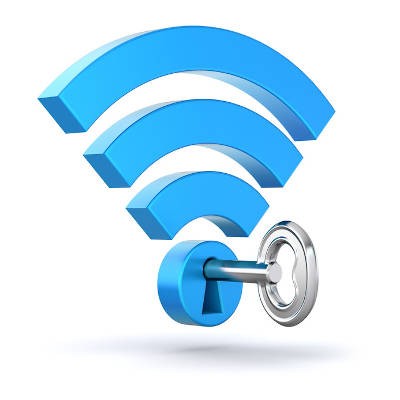Directive Blogs
Tip of the Week: Simple Practices to Secure Your Wi-Fi
Wi-Fi has swiftly become one of those amenities that we just expect to have, including in the workplace. While it does make work around the office more convenient, it should not be at the cost of your security. To help prevent this, we’re reviewing a few key Wi-Fi security considerations to keep in mind.
Don’t Rely On It For Your Security
Regardless of how secure your network purports to be, it doesn’t hurt to continue subscribing to best practices when it comes to maintaining your security -- in fact, it could very well hurt you not to do so. Wi-Fi in particular isn’t the most secure method to use out of the box, so you should always be sure to support what you use with additional protections and security measures. For example, you should always incorporate encryption to help protect your traffic, something that you need to make sure is done, because your traffic won’t be secure otherwise.
You should also follow general browsing best practices at all times, just as an added precaution. Avoid websites that lack the ‘s’ in https, as that ‘s’ stands for secure.
Protect Your Wi-Fi With Good Passphrases and Practices
At this point, most people are at least aware of what makes a bad password: the usual suspects, including:
- Simple and common words and letter combinations being used
- No variation in character type
- Reusing the same password for different sets of credentials
- Passwords written down on scrap paper or sticky notes
This is just a small sample of all the little habits and shortcuts that users will understandably start to pick up to make sure that they can remember all of the different passwords they need to maintain (not to mention the idea that they should use a different password for each account).
While your employees certainly shouldn’t be shortchanging your security measures, they are only human. One way to compromise with them (without compromising your security) is to use passphrases instead of passwords, creating a very bland sentence and using that as your authentication proof instead - something like “ipourthemilkintothecereal.” Memorable, yes, but certainly not well-known. Naturally, these should be kept confidential, and it will probably help to use a password manager to keep track of them. On top of that, add numbers, symbols, and capitalization.
Consider Your Wi-Fi Network
There are many ways that you can help increase the safety of your wireless network. Here are some quick highlights:
- Change your SSID away from the factory default to a unique but unrevealing alternative, even if you keep your network hidden.
- If a device has Wi-Fi capabilities that you are not actively using, make sure that the device is off to help truncate the amount of access points you have into your wireless network. If a device can be connected to your network via ethernet, consider doing so.
- Keep business use of the network separate from any guest use of the network with a dedicated guest network, protected by a simple passphrase that you update periodically. Turn off the guest network whenever it is not needed for added security.
Want extra help with any of these security considerations? Trust the experts at Directive! We can help keep your technology safe for you to continue your business operations with it in your corner. Call 607.433.2200 to learn more.


